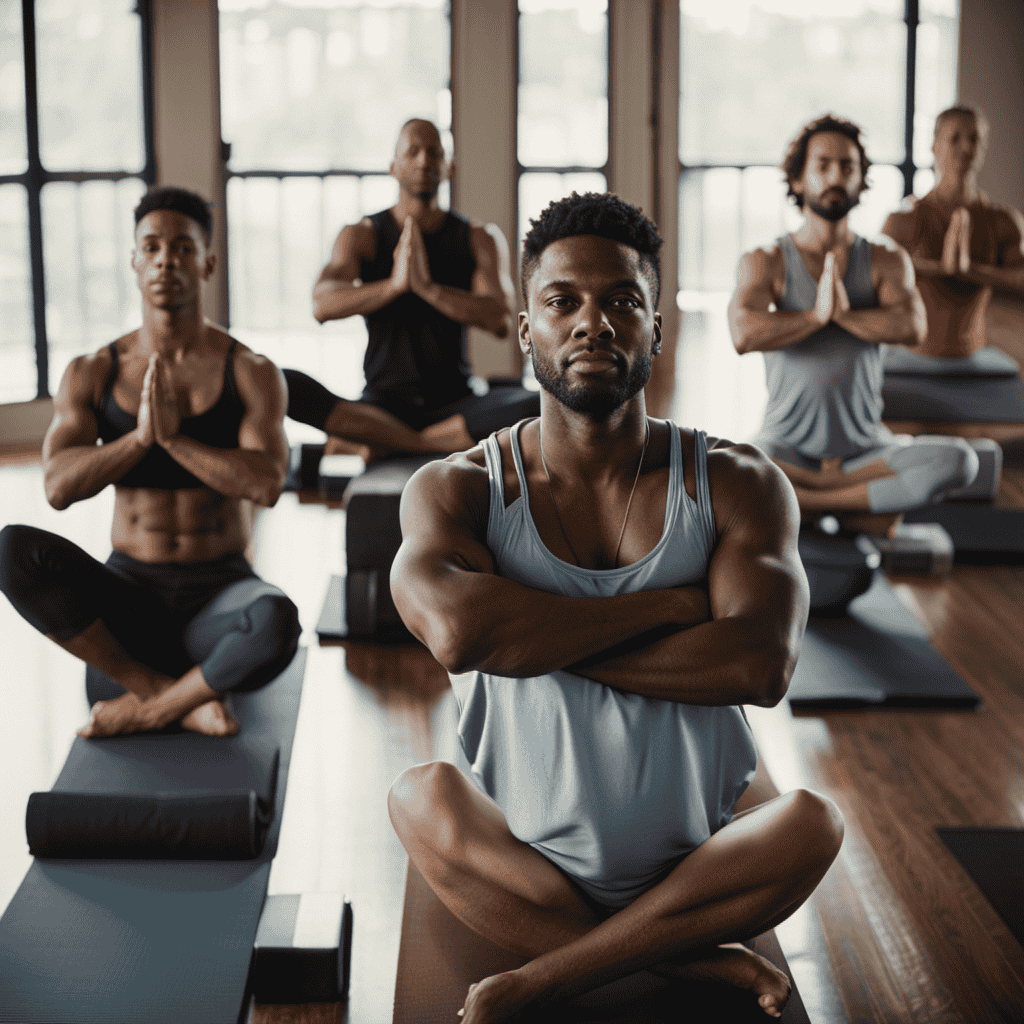Self-awareness is crucial in leading a purposeful life. It involves comprehending your own identity and can be achieved through self-reflection and personal development. Through self-discovery, you can uncover your true self, understand your driving forces, and learn how to live in accordance with your principles.
The journey of self-awareness begins by tuning inward and connecting with yourself on a deeper level. Through this connection, you can learn more about what drives your decisions, actions and reactions. You may even uncover past experiences that have shaped how you view yourself today – some positive and some negative. In order to move forward, it’s important to acknowledge these influences without judgement or guilt.
Asking questions that allow for thoughtful exploration is key in deepening one’s understanding of self. Once we become aware of our beliefs and emotions, we can start making conscious choices that reflect our authentic selves rather than responding based on old patterns or societal expectations. To begin exploring your own sense of self, let’s start off by looking at the core values that guide us through life…
Understanding Your Values
The process of learning who you are can be an enriching journey. In order to gain a better understanding of yourself, it is important to reflect on your values and beliefs. Taking the time for self-reflection can help you explore what matters most in life, which will ultimately lead to greater emotional intelligence and inner peace.
Discovering your personal values is key to becoming more self-aware and developing a sense of identity. Ask yourself questions such as: What motivates me? How do I make decisions? What brings me joy? Answering these types of inquiries gives insight into our core values and helps us identify areas we need to work on. It also encourages self-compassion and can provide clarity during difficult times.
Learning about ourselves often requires stepping outside of our comfort zone and pushing beyond our limits. Asking honest questions allows us to uncover deeper truths that may have been previously hidden from view. This kind of exploration takes courage but it’s worth the effort if you want to truly understand who you are. We all possess unique strengths and weaknesses – by analyzing them, we can take action towards creating a meaningful life that serves both ourselves and others around us.
Analyzing Your Strengths And Weaknesses
Unlocking what makes us unique is like untying a knotted string – it can take some time and effort, but the rewards are worth it. Analyzing your strengths and weaknesses helps you to understand who you truly are. Here’s how:
- Identify Your Strengths – Take time to reflect on what comes naturally to you; these are often your personal strengths.
- Acknowledge Your Weaknesses – Self-awareness brings with it understanding of areas in need of improvement or development.
- Develop Strategies for Improvement – Set goals and create an action plan that will help develop weaker areas into strong ones.
By recognizing our innate qualities as well as potential vulnerabilities, we can build upon them both and make ourselves better equipped to handle life’s challenges. Learning about yourself provides valuable insight into not only who you are now but also where you could be heading if pursuing self-improvement opportunities aligned with your values. Exploring life experiences can provide further clarity and direction on this journey of self-discovery.
Exploring Life Experiences
Exploring life experiences can be an invaluable exercise for learning who you are. It involves diving into the depths of your past, understanding how you got to where you are now and uncovering powerful lessons that have shaped your character. Here’s a helpful 3×3 table with questions to guide this exploration:
| Questions | Life Stories | Life Journeys |
|---|---|---|
| What events have I experienced? | What stories have influenced me? | How did my experience shape my beliefs? |
| What choices have I made in my life? | What moments defined my journey thus far? | In what ways has my journey changed me as a person? |
| How do these experiences reflect on me today? | How have the people around me impacted my story? | Which paths am I still drawn towards in life? |
Answering each of these questions will help you gain insight into the unique set of life lessons and changes that define who you are. By reflecting on our pasts and recognizing the life-altering decisions we’ve made, we can begin to truly understand ourselves in profound new ways. Our individual lives may look very different from one another, but when examined closely, they often reveal similar patterns of growth and transformation. This is why it’s so important to take time to explore our own personal journeys through meaningful conversations with others or by engaging in solo introspection. Doing so will give us deeper clarity about our identity and values — knowledge that can then inform every decision we make going forward.
Uncovering Your Beliefs
It’s time to explore our inner workings and uncover the beliefs that shape us. Taking a deep dive into our convictions is essential for developing an empowered life vision. To get started, let’s take a look at some questions designed to help you identify your core values, ideals and principles.
What are the most important ideas or concepts I hold? Which of these have been consistent throughout my life? What do I stand for even when it may be unpopular? How can I stay true to myself in difficult situations?
These are all powerful questions that will allow you to recognize what matters most to you. These answers form the basis of who we are – they direct decisions, relationships, goals and emotions. Once we understand our own internal compass, we can start to live according to what truly resonates with our heart and soul. We begin unearthing deeper truths about ourselves as well as discovering ways to honor them every day.
Through this process of self-discovery, we gain clarity on how best serve others from a place of authenticity and unconditional love. The next step is examining your priorities so you can make choices aligned with the person you want to become!
Examining Your Priorities
It’s time to start examining your priorities, the things that are important to you. Taking a closer look at what matters most in life can help us align our actions with our values and purposeful living. Here are four questions to consider when self-examining:
- What do I want out of life?
- What is my ideal vision for myself or others?
- What sacrifices am I willing to make in order to reach my goals?
- How will I measure success on my journey?
These questions can be used as a starting point for uncovering what really motivates us and how best we can fulfill our dreams. We must also remember that there may not always be one right answer – it might take some trial and error before finding the path that works best for us personally. Examining our life priorities helps us gain clarity about which direction we should head in, allowing us to create an action plan based around true meaning and fulfillment rather than temporary satisfaction or achievement. With this newfound focus, we can find more joy and contentment through intentional living.
Recognizing Your Goals
Recognizing your goals is an important part of learning who you are. It’s essential to set achievable and meaningful objectives for yourself, as this will help guide you on your journey toward self-discovery. Achieving your goals often requires a great deal of planning and dedication; however, by clarifying what it is that you want to accomplish, you can ensure that all of the hard work pays off.
First, take some time to assess where you currently stand in life. Make note of any successes or setbacks that have resulted from decisions made in the past. From here, begin setting realistic goals based upon these experiences and use them as motivation to continue striving forward. Additionally, be sure to allow enough flexibility when creating objectives so as not to become overwhelmed with too many expectations at once. These incremental steps will make reaching larger ambitions much more attainable over time.
A key factor in recognizing your goals should also include identifying why they are important to you personally. Having clarity surrounding this topic will provide additional incentive when adversity arises along the way. Furthermore, if something isn’t working out according to plan – don’t hesitate to adjust accordingly! As long as there remains clear intention behind each decision made, then it is likely that progress can still be achieved while exploring new possibilities simultaneously.
So remember: keep pushing onward and focus on realizing those dreams you have been dreaming about! With proper planning and persistence, anything is possible – just stay focused on the end goal no matter what obstacles may come up along the way. Investing energy into investigating your passions can open up countless opportunities for growth which could potentially lead towards greater success than ever imagined!
Investigating Your Passions
What lies beyond the goals you have set for yourself? What passions do you hold that are yet to be explored? These are questions only you can answer as you embark on a journey of self-discovery.
As daunting and intimidating it may seem, understanding your passions is essential in uncovering your purpose and achieving meaningful goals. It’s not just about having an idea of what makes you happy; it’s about delving deep within yourself. That means asking some hard questions, reflecting on them honestly, and being willing to take action upon finding answers. Here are 10 questions to get started:
1) What activities make me most fulfilled?
2) How have my interests evolved over time?
3) Who inspires me by example?
4) What topics motivate me to learn more?
5) Where does my creativity come from?
6) Are there any hobbies I’d like to pursue further?
7) Is there anything I’m curious enough to research or experiment with?
8) Are there unique experiences I want to try out this year?
9) When am I at my best, doing something specific or thinking particular thoughts?
10) If money were no object, how would I spend my days and nights differently than now?
By taking the time to reflect on these inquiries, we can gain valuable insights into our own lives and aspirations—a way of uncovering our deepest desires and connecting us back with true passion. Whether through writing down responses in a journal or discussing them with someone close to us, the process of exploring our interests will help bring clarity when seeking out meaningful paths to lasting fulfillment. Let’s continue this journey together by looking closer at discovering your habits and routines.
Discovering Your Habits And Routines
Exploring your habits and routines is a key step in learning who you are. Habits reveal how we spend our time, while routines provide structure to daily life. Taking the time to identify these patterns can help us create meaningful changes that will lead to lasting growth.
| Identifying | Understanding | Developing |
|---|---|---|
| Habits | Routines | Structure |
| Forming | Creating | Establishing |
Taking inventory of our habits and routines helps us build awareness around what works for us and what doesn’t. From here, we can make conscious decisions about which behaviors should be kept or discarded as we move forward. We start to form new habits that enable us to reach our goals more effectively, and begin creating effective routines that promote balance and well-being. This process gives us an opportunity to develop a strong internal structure so that we have more control over where we focus our energy.
By recognizing how we function on a day-to-day basis, it becomes easier to decipher what truly drives us. As this understanding takes shape, it provides clarity around which paths will bring out the best versions of ourselves.
Deciphering What Drives You
It’s easy to feel like we don’t have much control over our own lives, that it’s all dictated by outside forces. But in reality, our core motivations and inspiring values are the ones that truly determine how we approach each day and interact with others. Deciphering what drives us is a crucial part of self-discovery and ultimately discovering who we are as individuals.
Take for example Bob, an ambitious entrepreneur looking to make his mark on the world. He knew he had great ideas but wasn’t sure if they were worth pursuing or how best to move forward with them. After some soul searching and talking to people who could help him better understand himself, Bob was able to identify his core motivations: creating something tangible from scratch that would benefit society at large. His newfound knowledge energized him and allowed him to pursue his life purpose with renewed vigor.
Your own personal drive doesn’t need to be quite so grandiose or goal-oriented; it can also be about finding joy in small moments every day through activities you’re passionate about – baking cakes for friends, playing sports for fun, taking up gardening…whatever speaks to you! It’s important not only to figure out what motivates us individually but also how these motivations connect us with other people. We may find ourselves motivated by different things than those around us, but ultimately the end result should always be striving towards a greater good together.
No matter where we come from or who we are now, connecting with others allows us grow into more confident versions of ourselves while still maintaining our individuality. To reach this level of understanding requires a concerted effort of both introspection and external exploration – asking questions such as “What makes me excited?” “What brings me joy?”, and “Who inspires me?”. With enough time spent reflecting on these inquiries, anyone has the potential discover their true selves and take meaningful steps towards achieving their goals without losing sight of their innermost desires along the way.
Connecting With Others
Making connections with others is essential for a healthy and happy life. Connecting with other people allows us to build relationships, socialize, improve communication skills and form meaningful bonds. It can be difficult to open up when we are unsure of how someone will respond, but taking the risk can lead to some of our most rewarding experiences.
Here are four ways to start connecting with others:
- Make time for conversations – Taking the time to talk about your day or interests makes it easier to create an atmosphere of trust and understanding.
- Ask questions – Asking questions shows that you care and want to learn more about the person in front of you.
- Offer support – Showing kindness towards another person demonstrates empathy which helps foster deeper connections between two people.
- Listen actively- Listening without judgement signals respect and encourages the other person to open up further.
By investing time into forming these kinds of relationships, you provide yourself with an invaluable opportunity for self-discovery as well as growth through learning from different perspectives. Growing by exploring new ideas also provides a sense of purpose in life as one discovers their own value within society while connecting with those around them. By assessing the impact of other people in your life, you gain insight into who you are becoming on this journey called life.
Assessing The Impact Of Other People In Your Life
Exploring our social support network and understanding how relationships influence us is an important part of self-discovery. We can look to the family dynamics, peer pressure, and friends impact we’ve experienced throughout life for insight into who we are today. To help assess the impact other people have had on your identity, ask yourself these ten questions:
| Questions | Purpose |
|---|---|
| What values do my closest friends uphold? | Understand what you value in relationships. |
| How has growing up with siblings shaped me? | Recognize how family dynamics inform adult behavior and choices. |
| Are there any patterns I notice in the types of friendships I form? | Reflect on whether certain traits draw you to particular kinds of people. |
| Do I sometimes act differently around different groups of people? | Identify if certain settings bring out different sides of your personality. |
| How does peer pressure affect me when making decisions? | Uncover which influences shape behaviors or opinions outside your own beliefs system. |
| What kind of feedback do I tend to get from others about myself? | See if there is a disconnect between how other perceive you versus your self-image . |
| What kind of advice would those close to me give me right now? | Notice potential gaps in perspective that could be filled by anothers point of view. |
| Am I true to myself regardless of what my peers think/say ? | Analyze genuine motivations behind actions taken while considering external pressures. |
| What lessons have been learned through past relationships ? Find clarity on how experiences shape current outlooks towards interactions with others. | How balanced am I between being independent and relying on trusted advisors ? Assess autonomy levels in decision making processes relative to seeking counsel from depended sources . |
By reflecting honestly upon these questions, it’s possible to gain greater insight into one’s relationship history as well as more fully understand what roles various individuals serve in their lives – both positive and negative ones alike. This exercise allows us to recognize where boundaries should be set, develop empathy for ourselves and others, and build better connections going forward that last longer than ever before thought imaginable.
Reflecting On Life Decisions
Reflecting on life decisions can be a tricky endeavor. It requires us to take an honest look at ourselves and consider the consequences of our choices. As we reflect, it is important to keep in mind that mistakes are part of growing and learning. Here are three steps to help you get started:
- Ask yourself why you made certain decisions
- Acknowledge those decisions
- Consider how they have impacted your life today
Being able to think clearly about the past helps us understand the present better. We all make different choices based on who we are and what we believe; reflecting on these choices allows us to gain clarity around them. When making life choices, ask yourself questions like “What will I learn from this decision?” or “How will this choice serve me in the long-term?” Taking time for self-reflection can empower you with greater confidence when making future decisions.
Taking ownership over our lives involves being mindful of both our successes and failures. Reflecting on life decisions offers us an opportunity to evaluate our progress, see where things went wrong, and determine which changes need to be made going forward. By exploring various options and reflecting on each one, we can become more aware of how our actions affect others as well as ourselves. This awareness gives us insight into what we truly value in life, enabling us to create meaningful change that serves everyone involved.
With thoughtful reflection comes personal growth and understanding – essential components of successful living. Self-discovery requires patience, but it is worth taking the time to explore oneself without judgement or expectation so that we remain open-minded towards new possibilities ahead. Practicing self-care means knowing when enough is enough while also setting boundaries necessary for healthy relationships with others and oneself.
Practicing Self-Care
Now that you’ve reflected on life decisions, it’s time to focus on practicing self-care. Taking care of your mental health is essential for overall personal wellness and can help boost your self-esteem.
Start by taking some quiet time each day to practice meditation or mindfulness techniques. This will give you the space to reflect on yourself without any distractions from other people or things. You may also want to explore different activities such as yoga, journaling, creative projects or exercise that make you feel good about yourself and bring joy into your life. These activities are important because they allow us to reconnect with our inner selves and recognize what we truly need in order to be happy and fulfilled.
Self-care isn’t just physical though – it’s also emotional and spiritual too! Take regular breaks throughout the day to check in with how you’re feeling emotionally and spiritually so that you don’t neglect these aspects of who you are. Consider reaching out for support when needed — whether this is talking with a friend, family member or professional therapist — so that no part of your wellbeing gets neglected.
Through committing to daily practices like these, we can begin a journey towards understanding ourselves better and celebrating personal growth every step of the way!
Celebrating Personal Growth
Celebrating personal growth is one of life’s greatest rewards. As we look back on our journey and reflect on how far we have come, it’s important to take a moment to appreciate ourselves for the progress made. Self-development can be hard work but with dedication and self-reflection, it’s possible to create meaningful change in our lives.
Self-improvement often begins by asking ourselves difficult questions such as “What do I want from life? What values would serve me best? How can I ensure that my goals are realistic yet challenging?” Taking the time to answer these questions honestly helps us gain clarity about who we really are and what direction we should be taking. It also allows us to recognize our strengths and weaknesses so that we may continue to grow in areas where improvement is needed.
By celebrating each milestone along your path of self-discovery, you can take ownership of your successes while still allowing room for mistakes and setbacks without judgment or guilt. This will give you the confidence and motivation necessary to keep pushing forward no matter the challenge ahead – something essential when striving towards personal growth. So go ahead, applaud yourself for all that you have achieved thus far!
Frequently Asked Questions
How Can I Identify My Core Values?
Uncovering our core values can be one of the most powerful experiences in self-discovery! It’s an opportunity to truly reflect on who we are, what makes us unique, and how we want to live our lives. It’s a journey that begins with asking ourselves some important questions: What do I care about? What brings me joy? Why am I here?
The answers to these questions help us uncover our purpose and meaning, which often leads us to discover our core values. Our core values drive us forward towards personal growth and fulfillment. They become part of who we are – the foundation for living life authentically and happily.
If you’re looking to start this incredible journey of self-reflection and embark on your path of personal growth, pay attention to how you think and feel throughout the day. Notice when something excites or inspires you – those moments might just be clues pointing you towards your core values! Taking time each day for contemplation can also bring clarity around why it’s so important to identify them. With greater awareness comes understanding – revealing your true life purpose along the way!
How Do I Know If I Am Living Up To My Potential?
Knowing if you are living up to your potential is something that many of us strive for. It can be both a challenging and rewarding process, but understanding what it takes to reach our goals allows us to see the bigger picture when striving for success.
When we recognize and understand our own potential, it opens up new possibilities for growth and development. Taking time to reflect on where we are in life versus where we want to be gives us an opportunity to make changes or adjustments necessary to get closer to reaching those goals. We may discover things about ourselves that were hidden away until now; insights into who we really are and what motivates us can help guide us toward making meaningful decisions as we strive towards fulfilling our potential.
It’s important to take stock of all experiences, good or bad, so that one can look at them objectively without judgement. Evaluating past successes as well as mistakes teaches valuable lessons which can shape future endeavors with greater knowledge and insight. Knowing yourself better helps unlock doors leading down unexplored paths – unlocking inner strengths, passions and desires – all of which lead back to discovering your true potential.
This journey of self-discovery is not easy but the rewards far surpass the challenges faced along the way. Through exploration comes a newfound appreciation for oneself and a renewed sense of direction – tools needed when striving towards achieving your goals while maintaining balance within everyday life.
What Steps Can I Take To Create A More Positive Mindset?
Creating a more positive mindset is an important part of self-discovery and growth. It’s something everyone can benefit from, no matter their life circumstances or situation. To cultivate a healthier mental outlook and make real progress towards achieving your goals, you have to be willing to invest in yourself through self-reflection and goal setting.
One way to start developing your own positive thinking style is by recognizing the thought patterns that may be holding you back. For example, if you find yourself focusing on negative events or dwelling on past mistakes, it might be time for some serious soul searching. This doesn’t mean beating yourself up; instead, take this as an opportunity to identify what needs changing in order for you to move forward with confidence and clarity.
When creating a more positive mindset, don’t forget about the importance of taking care of your physical health too. Mental health and physical wellbeing go hand in hand – so make sure you get enough restful sleep each night, eat nutritious meals throughout the day, drink plenty of water, stay active with exercise and practice mindfulness techniques like yoga or meditation. All these things will help keep your thoughts focused on positive outcomes rather than worrying about potential failures or pitfalls along the journey ahead.
No matter how challenging life gets at times, having a strong sense of self-worth helps anchor us during difficult moments. Taking proactive steps towards cultivating a healthier mindset can help empower us to reach our highest potential while still being kinder to ourselves when we stumble along the way.
How Can I Be More Mindful Of My Daily Habits?
Mindful living is all about being aware of our daily habits, which can ultimately lead to a more positive mindset. Being mindful of our everyday actions helps us become better versions of ourselves and understand who we are on a deeper level. Taking the time to pay attention to these details in our lives can allow us to reflect and create positive habits that will help us to improve over time.
There are several things one can do when it comes to being mindful of their daily habits. Firstly, one should set aside some time each day for reflection, such as taking five minutes out of your morning routine or before bedtime. This will give you an opportunity to be present with yourself and focus on what’s going on inside your own head. Secondly, make sure you’re engaging in activities that bring joy into your life – whether it be through music, art, reading, exercising etc., find something that brings you joy and dedicate yourself to doing those things regularly. Lastly, practice self-awareness by noting how certain situations make you feel so that you know what works best for you and how different scenarios affect your mental health.
Some simple yet effective ways to incorporate mindfulness into your daily habits include:
- Making time every day for moments of stillness
- Doing things that bring joy and pleasure into your life
- Focusing on understanding how different scenarios affect your wellbeing
By implementing mindfulness practices into our routines, we open ourselves up to greater self-discovery and awareness – allowing us to uncover new layers within ourselves and gain insight into who we truly are at our core. It is only through this focused observation that we can strive towards creating healthier lifestyles that have the potential to benefit not just ourselves but also those around us too!
How Can I Better Manage My Relationships With Other People?
According to research, 90% of adults believe that having good relationships with other people is important for happiness. It’s no surprise then, that understanding how to better manage our relationships with others is a valuable skill worth exploring. After all, the quality of our interpersonal communication and conflict resolution skills can determine whether we make meaningful connections in life or not.
When it comes to relationship building, emotional intelligence plays a key role in success. In order to develop stronger social relationships, we need to invest time into learning effective methods of:
- Listening attentively
- Expressing ourselves clearly
- Respecting different perspectives
- Managing emotions constructively
As self-discovery writers, we must learn how to foster healthy relationships with those around us – even when disagreements arise. With this in mind, developing strong interpersonal communication skills helps us create an environment where everyone feels heard and respected. Additionally, mastering techniques such as active listening and conflict resolution can help us form mutually beneficial partnerships that are both enjoyable and productive.
Learning how to effectively manage our relationships requires hard work but will undoubtedly be rewarding in the end. These are lessons that cannot be learned overnight; however by consistently practicing these principles over time, we become empowered with the knowledge needed to build satisfying and fulfilling connections with others.
Conclusion
If there’s one thing I’ve learned through this journey of self-discovery, it’s that the answers to life’s questions aren’t always so straightforward. Everyone has their own unique path and is faced with different challenges than someone else. The important thing is to take time for yourself and work out what works best for you.
I know people who have tried every single ‘self-help’ article or book under the sun but still don’t feel like they’re living up to their potential. That doesn’t mean these things don’t work – in fact, if used properly, some of them can be incredibly helpful! But ultimately, only you know your true capabilities. It’s down to you to unlock the real power within yourself and reach your highest potential.
These 10 questions are just a starting point on your journey towards understanding who you are. Don’t limit yourself by trying to fit into any specific box – instead, keep exploring and learning about yourself until you find something that resonates deeply with you. And remember: “You must learn to trust your inner voice before anyone else” (Unknown).









